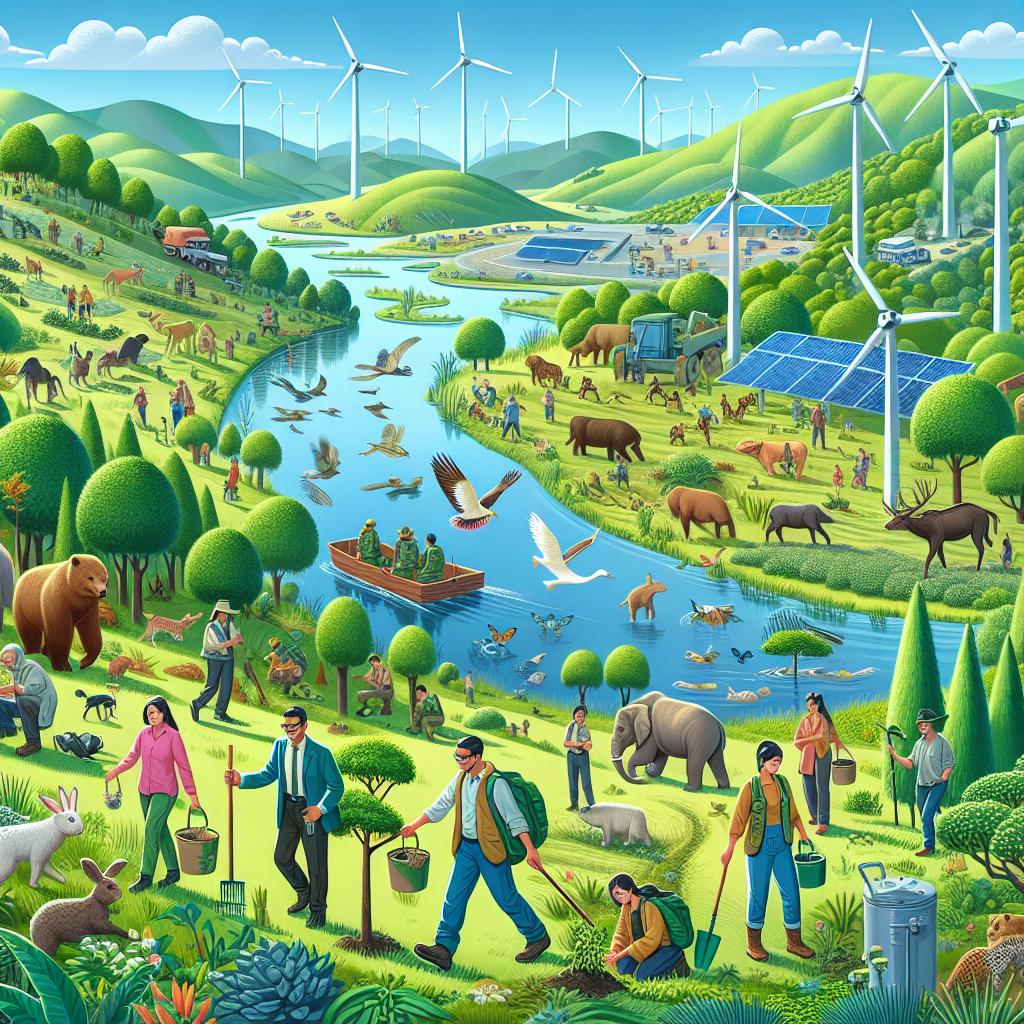Nurturing Nature's Balance

In our increasingly interconnected world, it is becoming increasingly clear that the wellbeing of our planet and its inhabitants are inseparably linked. From the majestic creatures of wildlife sanctuaries to the intricacies of our mental health, a holistic approach to sustainability is essential. In this article, we will explore how the interconnected issues of wildlife conservation, green transportation, green technology, water management, sustainable agriculture, and the climate's impact on mental health are all integral parts of a larger, harmonious ecosystem.
First and foremost, let us discuss wildlife conservation. The world's wildlife population has faced an alarming decline over the past few decades. According to the World Wildlife Fund (WWF), we have lost 68% of mammals, birds, amphibians, reptiles, and fish since 1970. The primary causes of this devastating trend include habitat loss and fragmentation, poaching, and climate change. To combat these threats, organizations and governments worldwide are investing in conservation efforts, from creating wildlife sanctuaries to implementing stricter regulations on poaching and wildlife trade.
A crucial component of a sustainable future is green transportation. As the world's population continues to grow, so too does the demand for transportation. However, the traditional fossil fuel-powered vehicles contribute significantly to greenhouse gas emissions, which in turn accelerate climate change. To address this issue, green transportation solutions such as electric vehicles, bicycles, and public transportation are gaining popularity. These alternatives not only reduce carbon emissions but also improve air quality in densely populated areas, contributing to better mental health and overall wellbeing.
Green technology plays a significant role in fostering a more sustainable world. From renewable energy sources like solar and wind power to energy-efficient appliances and buildings, green technology offers numerous benefits. It not only helps reduce greenhouse gas emissions and combat climate change but also creates jobs and stimulates economic growth. Furthermore, green technology's integration into our daily lives can lead to significant improvements in mental health and wellbeing, as people become more connected to nature and their communities.
Water management is another critical issue that intertwines with the topics of wildlife conservation, sustainable agriculture, and mental health. Access to clean water is essential for the survival of both wildlife and humans. However, poor water management practices and climate change are causing water scarcity and depletion in many parts of the world. To address these challenges, innovative solutions like rainwater harvesting, large-scale desalination plants, and water recycling and reuse systems are being employed. These solutions not only help preserve water resources for future generations but also provide opportunities for sustainable agriculture, which we will discuss next.
Sustainable agriculture is a vital component of a sustainable future. It focuses on producing food in a way that minimizes environmental impact and maximizes social benefits. By implementing sustainable farming practices like crop rotation, natural pest control, and organic farming, farmers can reduce their carbon footprint, conserve water, and promote biodiversity. Furthermore, sustainable agriculture offers numerous mental health benefits, as it fosters a deeper connection to nature, community, and food production.
Lastly, let us explore the importance of addressing the climate health effects on mental health. Climate change poses numerous threats to human wellbeing, including increased frequency and severity of extreme weather events, food and water scarcity, and displacement. These challenges can lead to stress, anxiety, and depression, particularly among vulnerable populations. To mitigate the mental health impacts of climate change, it is crucial that we invest in early warning systems, support systems for affected communities, and mental health services. Additionally, promoting green spaces and nature-based solutions can help reduce stress and improve mental health.
In conclusion, the interconnected issues of wildlife conservation, green transportation, green technology, water management, sustainable agriculture, and mental health are all integral parts of a larger, harmonious ecosystem. By addressing these challenges collectively, we can create a more sustainable, equitable, and mentally healthy world for future generations. As we strive for progress in each of these areas, let us remember that we are all interconnected and that our actions, no matter how small, can make a significant difference.




